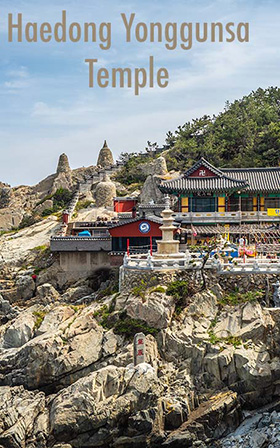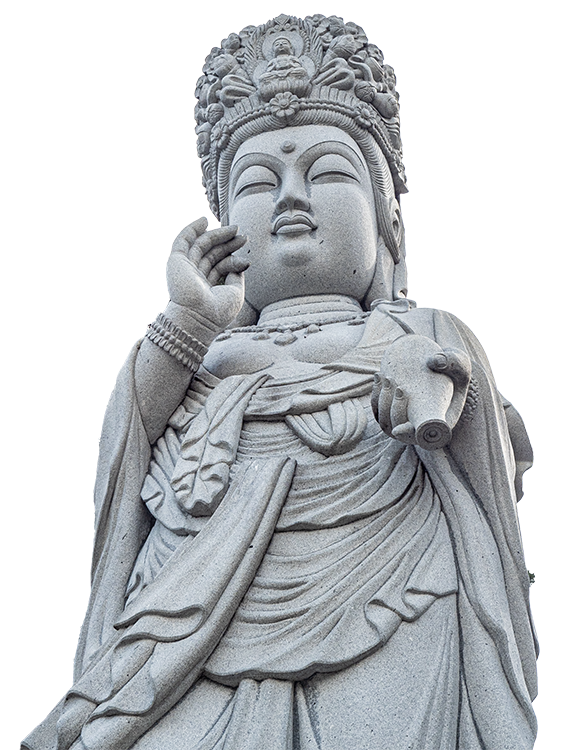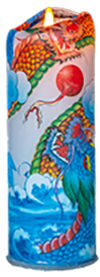


|
Most Korean temples, for example Shinhenugsa Temple, are located in the mountains. Haedong Yonggungsa Temple is one of the few located by the sea. In the city of Busan, is it easily reached by catching Bus 181 from Haeundae railway station. Originally built in 1376, during the Goryeo Dynasty (918-1392), it was severely damaged by fire during the Japanese invasions (1592-98) and then neglected for centuries. Restoration commenced in the 1930s. The temple was given its current name, Haedong Yonggungsa, in 1974. |
Leaving the bus and following the signs lead me to a path which was lined on one side by 12 Chinese zodiac creatures. Near the end of the path on the opposite side is a small fat Buddha. Rubbing its tummy is said to bring luck.
Following the zodiac creature lined path and climbing the prerequisite stairs I came to a small observation platform. From here I could see an arched bridge, the Main Sanctuary (Daengjeon), in front of it, a 3-storied pagoda, and higher, towards the back, a large standing Buddha.
A litter farther, and climbing a few more stairs placed me in front of the Daengjeon. During its reconstruction, in 1970, the exterior colour scheme was given meticulous attention.
Perhaps my timing is fortunate as the complex is not crowded .
Crossing the arch-bridge and looking down is a standing Buddha in what appears to be the highest of three small ponds. Above, are a group of what appears to be monks.
Inside the Daengjeon is a highly decorated altar with a golden Buddha flanked on either side by two golden Bodhisattvas.
Outside, to the left of the Daengjeon, unseen from the observation platform, is a large golden sitting fat Buhddha. The fat Buddha, often laughing depicts a plentitude of ones wishes for wealth, happiness, success or satisfaction.
Higher, the highest point in the temple complex, is a large standing Buddha, perhaps the most important Buddha in this complex, the Seawater Great Goddess of Mercy (Haesu Gwaneum Daebul).

|
Now at the highest point gazing out to the sea the view was unbounded, the blue of the water merging with the lighter, almost white, blue of the sky. Re-aligning my gaze back to the temple complex my eyes focused on another large golden seating Buddha. Not a fat one this time, but one wearing a Korean hat (gat). Buddha's wearing hats are healing Buddha's which are believed to cure diseases.

Coming down, but still looking out towards the sea, a series of rock cairns came morely sharply into focus. The rocks were neatly stacked into the shapes of chedi or prangs.
A small staircase descended from the floor into a small chamber where highly decorated candles are lit. Lighting of candles is also a Christian ritual.
Throughout the temple complex there were many minor statues of Buddha. A set of five recessed in a rock caught my attention, the Buddhas of academic study. Academic study, now there is an activity that I haven't participitated in for a few decades. I will get back into it real soon. Perhaps not!
Leaving the Academic Buddhas and with them my plans of future academic study, I was soon back on the path of the Zodiac creatures guiding me to the bus stop.